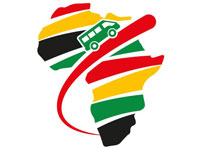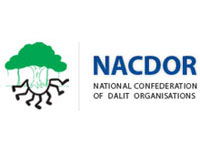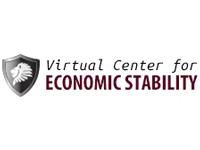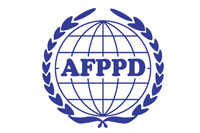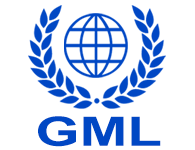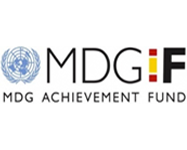
UN Millennium Campaign side event co-sponsored by the Governments of the Federal Republic of Nigeria and Uganda
In partnership with: The Association of European Parliamentarians with Africa (AWEPA), Ford Foundation, Women in Parliament Forum (WIP), UNDP Regional Service Center in Addis, UN Volunteers (UNV) and Centre for Policy Dialogue (CPD), and Southern Voices on Post-MDGs
Monday 13th July 2015, 3.30pm – 6pm at the Intercontinental Hotel, Addis Ababa
RSVP: nardos.hagos@undp.org
Introduction
The UN Millennium Campaign’s (UNMC) input into and influence on the debate on how to finance the Post-2015 development has been wide-ranging and impactful. The Campaign was part of the push to get tax dodging and illicit financial flows on the African Union’s political agenda through collaborations with the UN Economic Commission on Africa (UNECA), the Pan African Parliament and other partners across the continent.
The Campaign has conducted outreach and research in Africa and Asia on means of financing structural transformation and the post-2015, both of which have contributed to the overall financing for development and Post-2015 processes.
As we move towards the Third International Financing for Development Conference to be held in Addis Ababa, Ethiopia, the Campaign will continue to support stakeholders to define their roles in the implementation and monitoring of the outcomes of Addis conference within the context of the Sustainable Development Goals.
The Campaign’s financing work in Africa
The UNMC was one of the first organisations in Africa to hold deliberations on how the Post-2015 agenda will be financed on the continent.
In November 2013, the Campaign held a series of deliberations which preceded the Global Thematic Consultation on Governance held at the Pan-Africa Parliament in Midrand, South Africa. The deliberations brought together African thinkers, parliamentarians, experts, academics and civil society. Some of the key recommendations that emerged included; at the international level; implementation of Beneficial Ownership and Automatic Exchange of Information, observation of Paris Principles of Aid Effectiveness, increased transparency of international tax systems, and, exploration of innovative sources of financing. At the continental/national level the recommendations looked at; domestic resources mobilisation, addressing the structural factors that create a domestic environment that is conducive to illicit financial flows, establishing/improving existing registry of company ownership, making tax systems more accountable to the people, and managing remittances.
The outcomes also highlighted some of the challenges in improving financing for development such as; maximising the benefits of natural resource rents, matching tax potential to revenue needs and raising taxes in a progressive way, curbing illicit financial flows, and transforming foreign direct investment into tax revenues.
The conference and subsequent reports formed the basis of participation in the Financing for Development discourse for several civil society organisations and coalitions in Africa who continue to be heavily engaged today with technical support from the Campaign.
The Campaign’s financing work in Asia
As a follow up to the work done in Africa, UNMC received a grant from the Government of the Republic of Korea to support a multi-stakeholder process to generate some ideas and lessons, from the Asia-Pacific Region, to contribute to the global dialogue on the financing and implementation of the post-2015 sustainable development goals being negotiated under the auspices of the UN system. The reflections to this effect should draw, from among others, the principles outlined in the 4th High Level Forum on aid Effectiveness: “The Busan Partnership on effective Development Cooperation” and the “Busan indicators”.
The overall objective of the Asia initiative was to generate voices from civil society, academics and other stakeholders as input into the discussion on formulation of the post 2015 agenda; in particular the financing question. Specifically the initiative:
- Gathered voices from Asia on regional issues specific to the financing agenda that will contribute to the global debate on the post 2015 development agenda
- Generated a common set of policy asks as a basis for advocacy on financing the sustainable development developed
- Plans to conduct advocacy at national, regional and global levels to influence the process and content of the financing discussion
Multi-stakeholder voices and position: Financing for Development side event
Aims and Outputs
As part of the Campaign’s on-going process of supporting engagement of multiple stakeholders in financing for development, the side event will;
- Further disseminate the results and findings of our work on financing in Africa and Asia;
- Critically explore how these compare with the outcome document, currently called “The Addis Ababa Accord”.
- Explore the roles of different stakeholders in (i) supporting the implementation of the outcomes, (ii) contribute to monitoring the outcomes within the context of both official and unofficial process.
From this, UNMC expects the side event to have two primary outputs;
(1) Develop and collect the building blocks of a multi-stakeholder strategy to support implementation and monitoring of the Financing for Development outcomes within the context of the Sustainable Development Goals. This will form the basis of the Campaign’s work and engagement with partners on financing for development going forward.
(2) A multi-stakeholder declaration on the (i) position and (ii) vision on financing the Post-2015 agenda. This will underpin and guide the strategy noted in point (1) above.
Organisation and Participation
The side event will be co-sponsored by the Governments of the Federal Republic of Nigeria and Uganda, and led by the UN Millennium Campaign in partnerships with Ford Foundation, Women in Parliament Forum and UNDP Regional Service Center in Addis.
The Event will be attended by Delegations from member states as well as high level personnel including the SG’s Special Adviser on Post 2015 Ms Amina Mohammed, ASG Mr. Thomas Gass from UNDESA, Mr. Philippe Douste-Blazy, SG’s Special Adviser on Innovative Financing for Development and MDG Advocates, and representatives of the Economic Commission for Africa ECA. The. Participants from civil society and private sector will include the Africa civil society coalition on partnership for Development, Center for Policy Dialogue of Bangladesh, and founding members of IMPACT 2030. Parliamentary institutions participating will include the Network of African Parliaments on the MDGs, AWEPA and the Pan African Parliament. The Africa inter-faith initiative on Post 2015 will also be in attendance.

